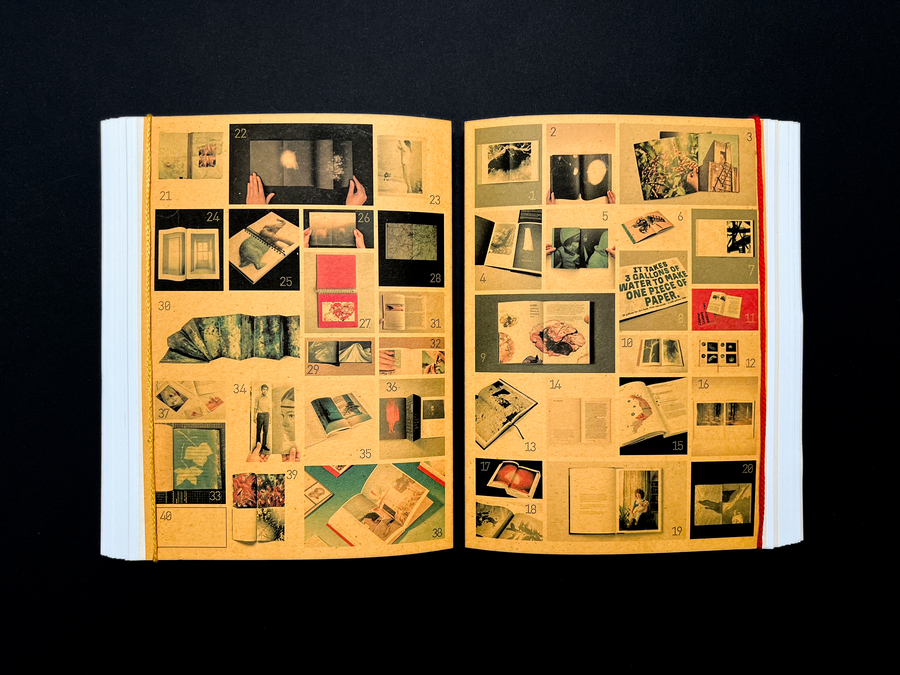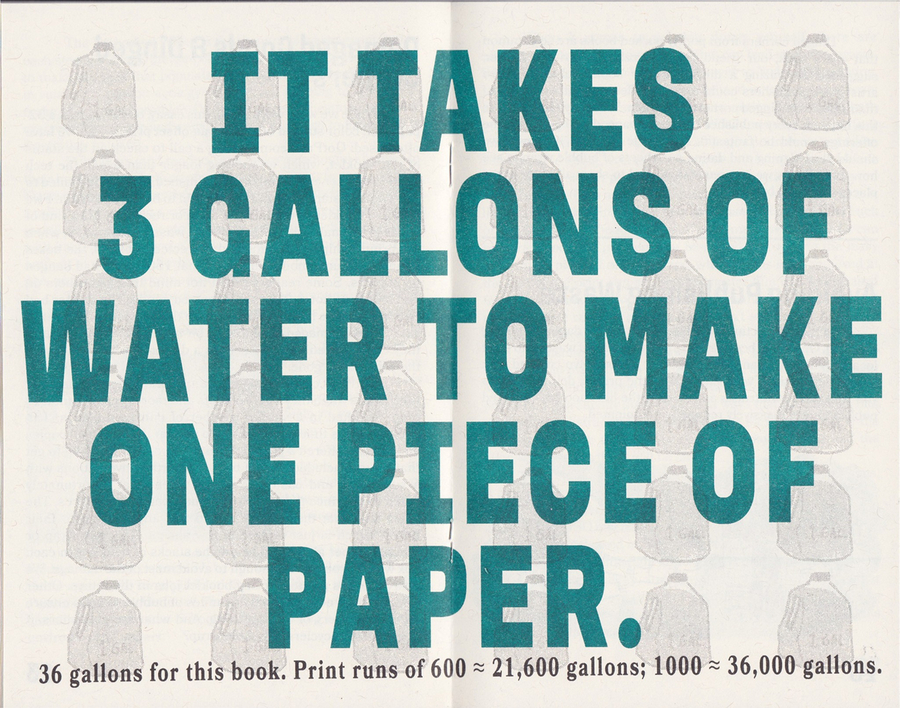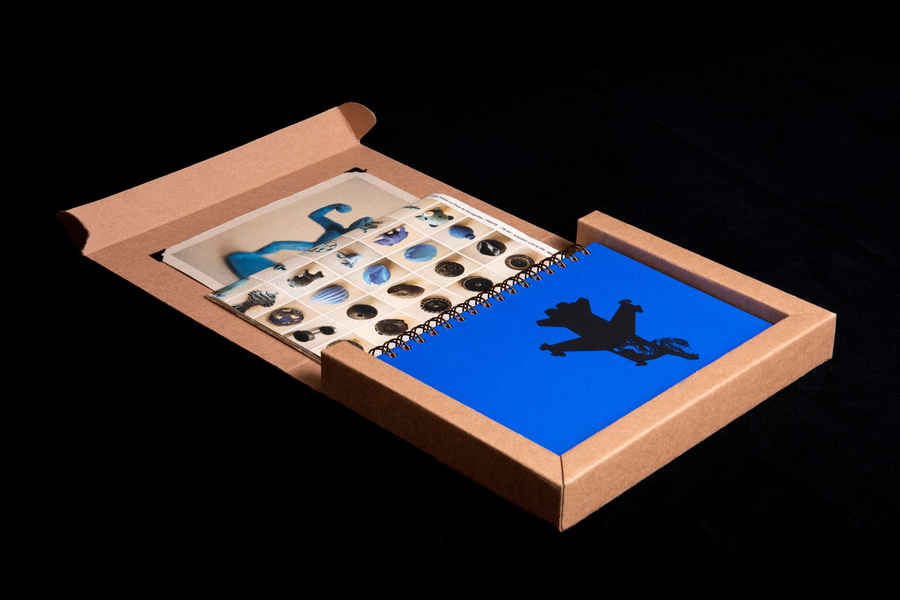 Spread from What Makes a Photobook Sustainable, published 2024 by SPPn
Spread from What Makes a Photobook Sustainable, published 2024 by SPPnBased on the publication of the same name, What Makes a Photobook Sustainable? is a reading room exhibition inciting conversation on how photography books are made and circulated. With the exponential growth of the photobook industry and the book’s portability, more than ever before, publishing mobilizes processes connected to local and global ecologies, through materials, money, labour, and transportation. This reading room presents more than 20 books illustrative of the Sustainable Photobook Publishing (SPP) network as a global platform, illuminating how photographers and publishers worldwide are navigating sustainability solutions, ethical social practices, and decolonial initiatives, and, critically, also features a special section highlighting local approaches to these concerns.
The photobook is an incredibly adaptable medium with an extensive variety of possible manifestations, formulating poetic visual essays, personal chronicles, political statements, creative non-fiction narratives, and more, into tactile, hand-held, personal, visual experiences. This adaptability, to a wide range of content and physical forms, is part of what has made it such a rapidly growing field of exploration in recent years. With the expansion of the industry and the ever-growing interest in the format, there are now photobook fairs and awards on every continent, as well as a broad range of publishers, from small imprints and self-publishers to medium and large-scale dedicated photobook publishers.
 Temporary Services, Book Waste Book, published 2022 by Half Letter Press
Temporary Services, Book Waste Book, published 2022 by Half Letter PressUnfortunately, the process of printing and binding books itself can be quite wasteful of resources including electricity, water, paper, and more, and can incorporate toxic substances, with waste products introduced into local environments. Although the relatively small size of the book format means that it can easily travel all over the world, shipping often entails prohibitively high costs, not to mention the significant additional environmental impacts of packaging and shipping across the planet.
Founded in 2021 by Tamsin Green, The SPP network is a platform for the exchange of ideas and knowledge around how we can move towards a more sustainable photobook publishing practice, both as individuals and collectively. The selection of books presented in the reading room is emblematic of the SPP network as a now-global platform, exemplifying the concerns addressed in their publication What Makes a Photobook Sustainable? (2024), also on view.
 Kate Schneider, How to Understand a Rock, 2023
Kate Schneider, How to Understand a Rock, 2023 Cristian Ordóñez, DISPLACE, published 2023 by Another Earth
Cristian Ordóñez, DISPLACE, published 2023 by Another EarthFurther, these international examples are supplemented by a selection of locally produced books and a two-day workshop that together ask the question: What makes a photobook sustainable here, both in Toronto and in Canada at large? Brought together in this context, all of these publications show that there is no singular “right way” of approaching sustainability—every individual and organization involved at all stages in the process of making books must decide on their own approaches and priorities, while also being mindful of the contexts within which they are working.
Each in their own way, the contributors of the featured works offer alternatives to capitalist economic models. Whether these involve practical solutions—using local materials, minimising waste, avoiding unnecessary travel—ethical social practices, or decolonial initiatives challenging the dominance of the Global North, these strategies provide glimpses of what an ecological future for the photobook might look like.
 Alfredo Blasquez, La playa de los juguetes perdidos, 2021
Alfredo Blasquez, La playa de los juguetes perdidos, 2021Co-presented by CONTACT and the Sustainable Photobook Publishing network
Curated by Tamsin Green











































